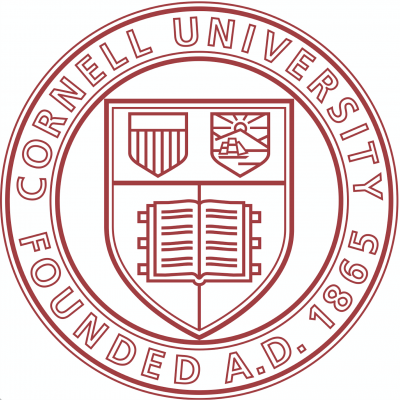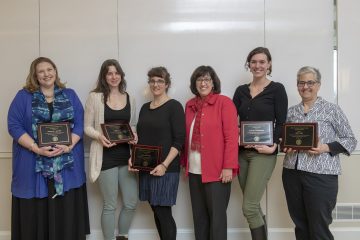Highlights from Announcements 3/18/19

Responding to Global Incidents in the Classroom
Last week’s terrorist attack in New Zealand may have an impact on students across campus. If you work with students as a TA or in another capacity, you may be wondering how to respond.
The Center for Teaching Innovation prepared the tips below on how to respond to local or global incidents that may impact the climate for teaching and learning on campus and a slide deck, which includes resources to share with students.
In the event of an incident that can impact the climate for teaching and learning (e.g. bias incidents on campus, national and global events), consider ONE or more of the following actions. Choose a response that you are comfortable with.
- Take a minute at the beginning or end of class to acknowledge what happened and the impact it has on our community (students, faculty, and staff); you can refer to the news, a message from the administration, etc. This can be a sentence or two.
- Encourage your students to seek support from each other, campus resources, and family and friends.
- Share resources for impacted individuals (campus offices) and those who wish to support them (e.g. intergroup dialogue). Feel free to project the resources on the attached slide deck in class.
- Acknowledge that not everyone is impacted in the same way.
- Ask students to consider their place in Cornell’s community, and what they can do to contribute to making Cornell more welcoming and affirmative of targeted students.
- Ask for a moment of silence to hold the space and affirm those who are targeted.
- Consider lightening the cognitive load in class (e.g., offer review sessions, extend timelines/due dates, etc.) as students work through their responses to the incident, which for some will be significant. Moments like these can have an adverse effect on learning.
- If you’re comfortable, facilitate a short write-pair-share exercise. Allocate about three minutes to write individually, ask students to pick a discussion partner, and then ask each person to share for about three minutes. Writing prompts might be, “What has the impact of this incident been on you? What do you think the impact has been on your peers?”
Cornellians Win Cook Awards for Improving Campus Climate for Women

Students, staff and, faculty members who exceeded their job responsibilities to enhance the atmosphere for women at Cornell were recognized at the 20th Cook Awards luncheon March 12 in Warren Hall. Colleagues, family, and academic leaders including deans, vice provosts, President Martha E. Pollack, and Provost Michael Kotlikoff attended the celebration.
“The people we’re recognizing today with this award are people who have done something absolutely fundamental for us as a community: They’ve helped bring Cornell’s reality closer to its ideals,” Pollack said.
Read the full Cook Awards story
Einaudi Center Funds Cornell Dissertations with Global Impact
 Twelve graduate students will spend this year refining their dissertation plans and testing the waters of global research, with help from faculty mentors and intensive workshops, in the Einaudi-SSRC Dissertation Proposal Development Program.
Twelve graduate students will spend this year refining their dissertation plans and testing the waters of global research, with help from faculty mentors and intensive workshops, in the Einaudi-SSRC Dissertation Proposal Development Program.
The Mario Einaudi Center for International Studies, partnering with the New York-based Social Science Research Council, selected this year’s awardees based on the potential impact of their research and its cross-disciplinary engagement with world issues. The students will receive up to $5,000 for summer research in countries like Malawi, Sri Lanka and India.
Read the full Einaudi program story
Student Spotlight: John Wyatt Greenlee
 John Wyatt Greenlee is a doctoral student in medieval studies from Salt Lake City, Utah. After attending Hamilton College as an undergraduate and East Tennessee State University for his masters, he chose to attend Cornell to study cartographic and spatial history.
John Wyatt Greenlee is a doctoral student in medieval studies from Salt Lake City, Utah. After attending Hamilton College as an undergraduate and East Tennessee State University for his masters, he chose to attend Cornell to study cartographic and spatial history.
Read the full student spotlight
Interested in what other graduate students are doing both on and off campus?
Check out our student spotlights, Q&As with current students about their research, hobbies, and experiences at Cornell.

